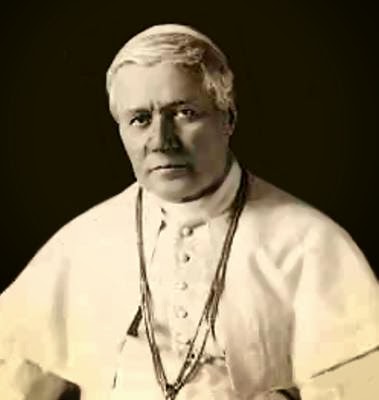"The Holy Mass is a prayer itself, even the highest prayer that exists. It is the Sacrifice dedicated by our Redeemer at the Cross, and repeated every day on the Altar. If you wish to hear Mass as it should be heard, you must follow with eye, heart and mouth all that happens at the Altar. Further, you must pray with the Priest the holy words said by him in the Name of Christ and which Christ says by him. You have to associate your heart with the holy feelings which are contained in these words and in this manner you ought to follow all that happens on the Altar. When acting in this way you have prayed Holy Mass."
 |
| Saint Pope Pius X |
This is the spirit in which the Fathers of the Second Vatican Council called for
But in order that the liturgy may be able to produce its full effects, it is necessary that the faithful come to it with proper dispositions... Pastors of souls must therefore realize that...it is their duty also to ensure that the faithful take part fully aware of what they are doing, actively engaged in the rite, and enriched by its effects. (Sacrosanctum Concilium, 11)and
Mother Church earnestly desires that all the faithful should be led to that fully conscious, and active participation in liturgical celebrations which is demanded by the very nature of the liturgy.... In the restoration and promotion of the sacred liturgy, this full and active participation by all the people is the aim to be considered before all else (Sacrosanctum Concilium, 14)and
To promote active participation, the people should be encouraged to take part by means of acclamations, responses, psalmody, antiphons, and songs, as well as by actions, gestures, and bodily attitudes. And at the proper times all should observe a reverent silence. (Sacrosanctum Concilium, 30)"Active participation" wasn't something the Council Fathers made our of whole cloth, they were bringing to fruition the hard labor of the liturgical movement - a movement whose goal is summed up perfectly by St. Pope Pius X, "Don't pray at holy Mass, pray the holy Mass." The Council Fathers, and Pope Pius, didn't want the faithful to pray the Rosary during Mass (as powerful as the Rosary is, it isn't the Mass) or to simply warm a pew to fulfill an obligation. Nor did the Council Fathers, or Pope Pius, want the faithful to sing hymns that are not a part of the Mass instead of hearing or chanting the Propers of the Mass (which are a part of the Mass!). They wanted the faithful to pray the Mass and ultimately to be sanctified by the Mass. Of course, that doesn't mean there is no room for private prayer at Mass - we know there is (we've covered some great private prayers HERE), but should the Mass be dominated by these? Should they replace parts of the ritual itself? I think we know what Pius would have said - "pray the Mass."
The Sacred Council didn't want the Mass to be "dumbed down" (as if we, the laity, are too stupid to understand anything above a 3rd grade level), but wanted we, the laity, to be taken up into the mysteries of the holy Sacrifice. Which is exactly why chant (see SC 116), the organ (see SC 120), Latin (see SC 36) are all to be kept in the Mass and why things like weak homilies, versus populum worship, communion in the hand, and bad liturgical art and architecture were not called for by the Council. Conforming the Mass to the culture it is being celebrated in was never the goal. Rather, Pope Pius X (and Vatican Two) were seeking to conform man (and his culture) to the Mass.
No comments:
Post a Comment